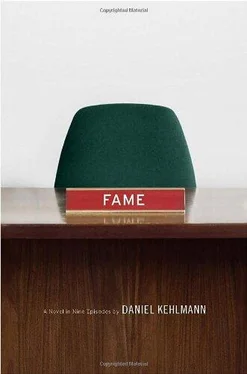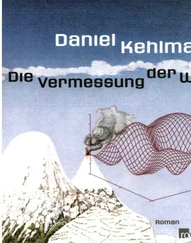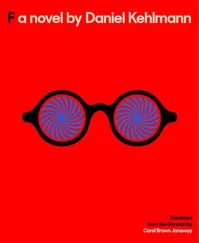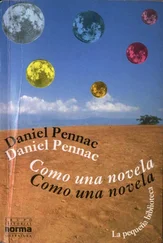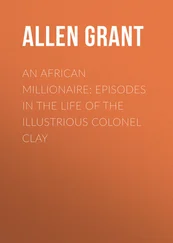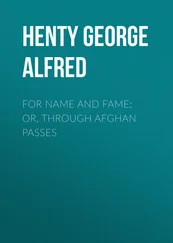Get on and do something, she says to me. Spoil your story. Who’s going to care, there are so many stories, it’s not all about just one. You could make me better again, you could even make me young. It wouldn’t cost you a thing.
She almost managed to coax me out of my reserve, but right now I’m preoccupied with other things: I’m really bothered that I have no idea who the guy behind the wheel is, who invented him, and how he got into my story. My plan involved a little boy and a bike, a motorcycle gang and a retired Colombian coffin maker. A little dog was also to be given a major role, largely symbolic. Twenty pages of drafts, a lot of them really good, that I can just as well throw away now.
They’re already leaving the Autobahn, the first houses on the outskirts of Zurich appear: little gardens, advertisements for milk, more little gardens, schoolchildren with oversized knapsacks. Suddenly he hits the brakes, jumps out into the street, runs around the car, and opens Rosalie’s door. “Dear lady!”
She climbs out. “We’re here?”
“Yes indeed!” He makes an absurdly low bow, his arms hanging slack so that the backs of his hands brush the wet asphalt. He holds this pose for several seconds, then straightens up again. “Determination. Whatever projects you have planned, perform them with determination. Think about that.” He turns and walks away with long strides.
“But your car!” Rosalie calls after him.
He’s already disappeared around the corner, and the Citroën sits there abandoned, its blinkers going, and the door wide open. Rosalie squeezes her eyes, then focuses on the street sign, and realizes with a mixture of relief, incredulity, and anger that he’s dropped her off in the wrong place.
She lifts her hand and stands there for a long time in the rain, getting wetter and wetter and feeling wretched beyond words. Finally a taxi pulls up. She gets in, gives the driver the correct address, and closes her eyes.
Let me live, she tries one last time. Your story. Forget it. Just let me live.
You’re clutching at the illusion that you really exist, I reply. But you’re made of words, vague images, and a few simple thoughts, and they all belong to other people. You think you’re suffering. But nobody’s suffering here, because nobody’s here !
You and your clever words! You can stick them up your ass!
For a moment I’m speechless. I’ve no idea who taught her to talk like that. It’s not who she is, it’s a stylistic break, it spoils my prose. Please pull yourself together!
No, I won’t. I hurt. One day it’ll happen to you too, and someone will tell you that you don’t exist.
Rosalie, that’s precisely the difference. I do exist.
Oh yes?
I have a personality and feelings and a soul, which may not be immortal but it’s real. Why are you laughing?
The driver looks round, then shrugs his shoulders, old people are strange and that’s that. The windshield wipers are on high, rain is bouncing back up out of the puddles, people are staring out from under their umbrellas. The last journey, says Rosalie softly, and precisely because it’s true, the thought rings both false and pathetic. It doesn’t matter what kind of life you’ve had, she tells herself, it always ends in horror. And now all that remains is to let the minutes go by. There are approximately twenty left to her, each one filled with seconds; it’s a long time. The clock will tick thousands of times more, the end is still unreal for now.
“We’re here!” says the driver.
“Already?”
He nods. She realizes she hasn’t changed any money, and has no Swiss francs. “Please wait. I’ll be right back.”
As she’s getting out, she simply can’t believe her last act is going to be cheating on a taxi fare. But life is such a mixed-up, impure business, and now she’s no longer responsible. Here is the name board with all the buzzers, and on it, as if it meant something other than death itself, is the name of the association. She rings, the door immediately unlocks itself with a dull hum.
The elevator is ancient, the suspension cables above the car groan, and as she goes up, she understands that until this moment she’d never believed she would set foot in this house. The car stops, the door glides open, and there appears out of nowhere, as if to prevent her from pushing the button that will take her back down again, a thin man with a center part in his hair. “Good day, my name is Freytag.”
And now?
I know I should tell it all. Rosalie walking through the anteroom to the inner room in which the dying is done. The table; the chair; the bed, I should describe them, I should paint a picture of the battered furniture, the strange layer of dust on the little wall cupboard, the general air of a place that’s both used and uninhabited, as if it were the home of shadows, not people. And of course the camera; I should mention the camera, installed to document that the terminally ill patients drink the poison themselves, that nobody forces them, the association has to cover itself legally. I should recount how Rosalie sits down and props her head on her hands, how she looks out of the window for one last sight of the endless foggy expanse of sky, how fear gives way to exhaustion, how she—here, please, and here, and again here—signs forms, and how the glass of poison is finally set down in front of her. I should describe how she lifts it to her mouth, I should conjure up the mixture of aversion and longing as she looks at the watery liquid, her brief hesitation, because she could still turn back and, even if for a matter of days, choose life with all its pain and all its adversities, but then she decides against this—she’s come too far, she’s too close to the threshold to turn back. I should also describe the last wave of her memories: games at the edge of a peaceful lake, the moist kiss of a motherly woman, her father behind the Sunday paper, the little girl who sat next to her at school, and a boy she hasn’t thought about since back then, and the bird in a cage at her grandmother’s that could enunciate several words quite clearly. Nothing, if truth be told, in the intervening seventy-two years, has ever fascinated her as much as that talking creature.
Yes, it could have made a really good story, a little sentimental, granted, but with humor to counterbalance the melancholy, the brutality offset by a touch of philosophy. I had worked the whole thing out. And now?
Now I ruin it. I tear the curtain aside, I become visible, I appear by Freytag’s side at the door to the elevator. For a second he looks at me uncomprehendingly, then he turns pale and vanishes like dust. Rosalie, you’re cured. And while we’re at it, be young again. Start from the beginning again!
Before she can even respond, I’ve disappeared again and she’s standing in the elevator that’s grinding its way back downstairs and cannot grapple with the fact that a twenty-year-old woman is looking back at her out of the mirror. Slightly irregular teeth, hair a little sparse, neck too thin, she never was a beauty, but I can’t give her that as well. Although, on the other hand—why not! It’s not important anymore.
Thank you.
Ah, I say, exhausted, don’t celebrate too fast.
She pulls open the front door and bounds out into the street on legs that no longer hurt. Her clothes look peculiar on her: a young girl dressed like an old woman. Because the taxi driver doesn’t recognize her, he doesn’t stop her, he’s lost his fare and will still be standing here half an hour later, watching the meter keep ticking with rising concern, and finally banging on every door in the building. At the association they tell him that they were indeed expecting an old lady but that she hadn’t bothered to keep her appointment. He will go off cursing and this evening will shovel down his wife’s wretched cooking, even more taciturn than usual. It’s long been in his mind to kill her, with a knife or his bare hands, but today’s the day he decides to go through with it. But that’s another story.
Читать дальше
